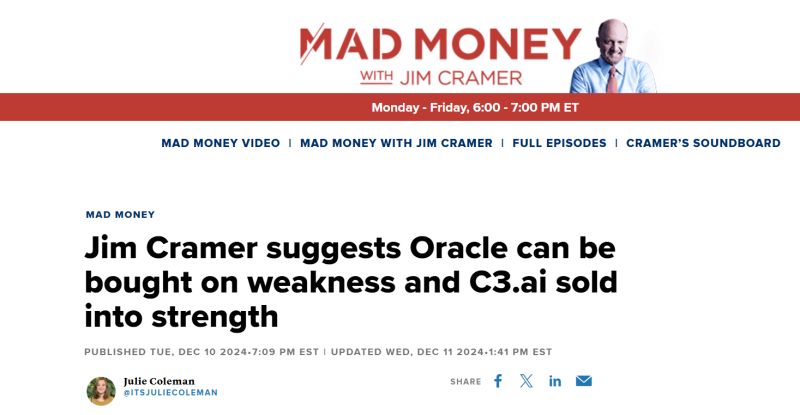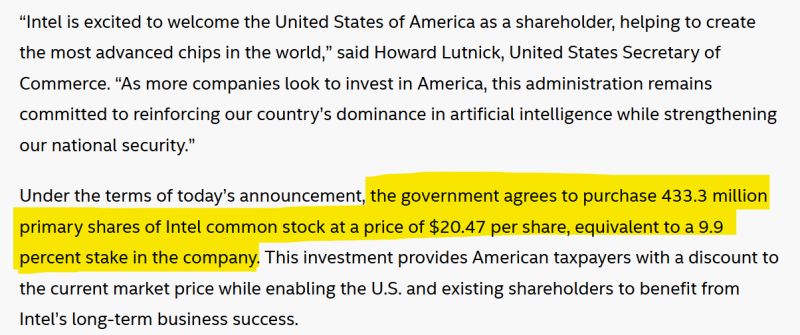It’s tough to miss the irony.
The Trump administration’s recent decision to acquire a stake in Intel (see image, source: Intel’s press release on Aug 22, 2025), with unconfirmed reports of similar moves ahead in U.S. defence contractors, has many in business and policy circles in the US and across the world doing a double take.
That is because this is exactly the kind of move the U.S. has spent years criticizing China for.
In China:
The government directly owns big chunks of strategic companies like AVIC (aviation/defence), CSSC (shipbuilding), and Cambricon (AI chips).
Even NIO, the Chinese EV champion, got a $1B bailout from state-owned funds in 2020 — saving it from collapse and giving the local government a seat at the table.
This model — where the state owns pieces of major companies and steers them toward national goals (which may not really coincide with shareholders’ goals) — is what you would usually call State Capitalism. And across decades now the messaging has been that State Capitalism is unfair, market-distorting, and… well, un-American.
But now?
If Washington starts doing the same — equity stakes in chipmakers and defence firms — then are we seeing the initial contours of the US version of it?
Some American commentators are calling this a step towards becoming a Command Economy eventually (how else would you explain Apple’s $600 billion US commitment and its launch of the American Manufacturing Program?).
Command Economy?
Doesn’t that kind of sound more Soviet than American?
Sure, the reasons are there and are undeniably significant when viewed from the lens of American interests: national security, reshoring, tech competition with China.
But the response to those threats?
It does sound like the beginnings of a change in the DNA of the American Free Market Capitalism as we knew it.



